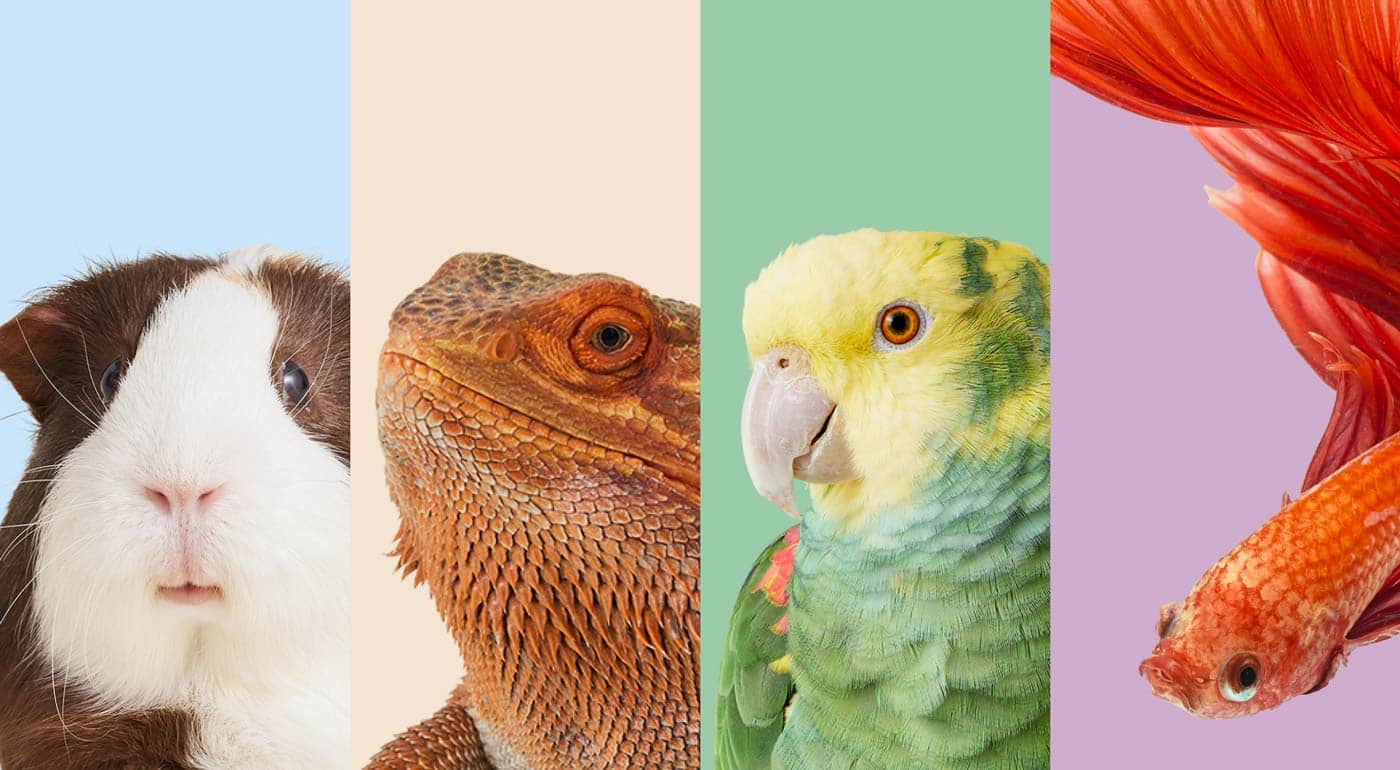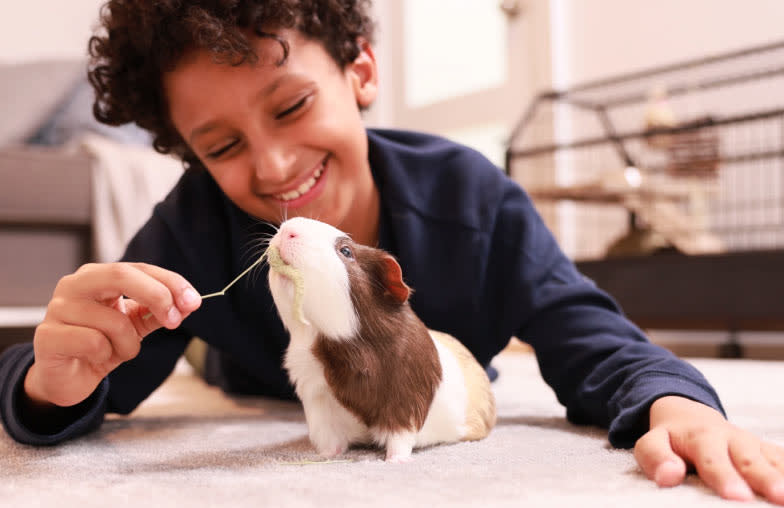Welcoming a small pet into your life can feel like picking a new best friend — but in miniature! From hamsters to reptiles, these little pals can come with big personalities and even bigger responsibilities.
Sure, they may not require daily walks or bark at the mail carrier, but don’t let their size fool you — they each bring their own quirks, habits and needs to the table.
Before you dive headfirst into the world of hamster wheels, fish tanks or bird cages, it’s worth considering which pet will truly fit your lifestyle. As Zana Ellis, Manager of Learning and Development at Pet Valu, puts it, “We always want everybody to do
their research.”
After all, the right match isn’t just about what’s cute; it’s about finding a companion that clicks with your daily life, space and
level of commitment.
Which small pet is right for you?
Choosing a small pet begins with understanding what you’re signing up for.
Ellis says to consider factors like the pet’s life expectancy, daily care requirements and compatibility with your schedule. She suggests asking yourself questions like:
Are you ready for a shorter-term commitment, or are you prepared for a pet that could live over a decade?
Do you have the time and resources to meet the specific needs of the type of small pet or breed you’re considering?
Are you comfortable with the feeding requirements for the pet you’re contemplating?
For instance, if you’re frequently traveling, perhaps looking for a pet that’s simpler for friends or family to care for might be ideal.
Or if you’re ready for a long-term pet commitment, options like “chinchillas can live up to 18 to 20 years,” Ellis says.
Her point: you need to match your pet to your lifestyle.
Each small pet has unique characteristics and needs. Understanding these traits can help you choose one that aligns with your daily life. Ellis emphasizes, “Not all small pets are the same. Some have very specific diet requirements or environmental needs.
Hamsters: These nocturnal creatures are relatively independent but require daily interaction to remain social.
Reptiles: Lizards and snakes may need specialized care, such as heat lamps or live insects for food.
Birds: These social animals thrive on interaction and need space for enrichment.
Fish: Aquariums require time and attention to maintain water quality and balance.
Ready to bring your pet home? Essential steps for prepping and welcoming your new pet.
Once you’ve chosen your small pet, preparation is key.
“The first thing you have to get is the right cage or habitat,” Ellis says. Not all enclosures suit every pet, so it’s essential to choose one that was designed to meet the specific needs of your animal.
She adds, “We always recommend offering the largest housing possible while ensuring safety.”
Beyond the enclosure, Ellis highlights the importance of species-specific items like bedding, food dishes, and environmental enrichments. “It’s their home, so it has to be safe and comfortable.”
While small pets might seem like low-maintenance companions, they still require daily attention. As Ellis puts it, “Smaller pets don’t always live as long as dogs or cats, but they still require significant care.” Regular cleaning, feeding and interaction are all part of the package.
Ellis encourages pet parents to consult experts when figuring out daily routines — including feeding — for a new pet family member. “Talk to an Animal Care Expert at your local Pet Valu,” she suggests. “They can guide you toward the right choices and help set you up for success.”
Whether you’re drawn to the busy energy of a hamster or the serene beauty of a fish tank, there’s a pint-sized pet just waiting to join your household. Take your time, do your research and lean on the expertise of professionals to ensure a harmonious match for you and your new furry, fuzzy, scaly or feathered friend.












































